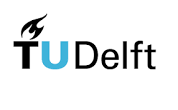
TU Delft is the largest University of Technology in the Netherlands with approximately 17,500 students and 2,500 scientists. TU Delft is a multifaceted institution offering education and research in the technical sciences at an internationally recognized level. Health technology is one of the most important research areas as reflected by the Delft Health Initiative, which supports different health related research within the university, including medical imaging. TU Delft is the highest ranked Dutch university and the third highest European university of technology in the 2014 World Reputation Rankings of Times Higher Education magazine.
The Faculty of Applied Sciences is the largest faculty of TUD, with around 650 scientists, a 240 support staff and 2,400 students. The faculty conducts fundamental, application-oriented research and offers scientific education at the bachelor, master and doctoral levels. The faculty is active in the fields of Life and Health Science & Technology, Chemical Engineering, Radiation Science & Technology, and Applied Physics. The research and education of the Section Radiation and Isotopes for Health (RIH) of the Department Radiation Science & Technology (RST) is focussed on the use of radiation and radioisotopes in the health sciences, in particular on the development of innovative approaches for the application of radiation and isotopes in medical imaging and therapy. To this end, the Section performs research on new production pathways and applications of radioisotopes, on the in-vivo imaging of radionuclides for medical diagnosis and research, and on the development of new methods and instrumentation for clinical therapy and diagnosis.
Dennis Schaart
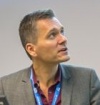
Dennis R. Schaart is an expert on in vivo molecular imaging technologies for diagnostic and (radio-)therapeutic applications. He has experience in the medical device industry as well as academia. While working at Nucletron (now Elekta) on new devices for radiotherapy he wrote a PhD thesis on the subject of intravascular brachytherapy, for which he obtained his doctoral degree (with highest honors) at Delft University of Technology. His main research interests include novel methods and technologies for time-of-flight positron emission tomography (TOF-PET), PET/MRI, particle therapy, and scientific applications such as positron annihilation lifetime spectroscopy (PALS). Dr. Schaart is a member of the IEEE Nuclear and Medical Imaging Sciences Council (NMISC), has (co-)authored more than 75 journal papers, numerous conference contributions, and is a frequent invited speaker. He leads Work Package 1 of the HYPMED Project.
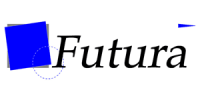
Components for products of the future: that is what Futura Composites produces. As a specialist in fibre-reinforced composites, we are a reliable partner for all manufacturers of high-grade technical applications. Futura Composites operates at the very highest technical level. They supply products of high-grade material for to one-of-a-kind designs, which require extensive engineering work and are produced using highly advanced techniques.
Futura designs, engineers and manufactures components, but their main product is technology. Futura Composites offers solutions for the technological challenges encountered by specific clients and they supply tailor-made products. Each product they make requires a great deal of innovation and that is why creativity is central to their working methods. Futura Composites performs the entire production process in-house, from design and engineering to production and testing.
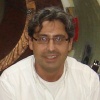
Martino Borgo
Martino Borgo is managing director of Futura Composites and has more than 25 years of experience in the composites industry, engineering and manafacturing a wide range of composite components to meet the the demands of many different applications.

Philips is a diversified health and well-being company, focused on improving people’s lives through meaningful innovation in the areas of Healthcare, Consumer Lifestyle and Lighting. Headquartered in the Netherlands, the company is a leader in cardiac care, acute care and home healthcare, energy efficient lighting solutions and new lighting applications, as well as male shaving and grooming and oral healthcare. Philips actively participates in ‘Open Innovation’ through relationships with academic and industrial partners, as well as via European and regional projects, in order to improve innovation efficiency and share the related financial exposure. The High Tech Campus in Eindhoven (Netherlands), the Philips Innovation Campus in Bangalore (India), and Research Shanghai (China), are prime examples of environments enabling open innovation. In 2013, Philips invested €1.7 billion in Research and Development.
Philips Research participates through its Oncology Solutions Department. Since Philips is one of the top three manufacturers of clinical diagnostic systems including relevant modalities for this project proposal, i.e., PET and MR, it provides a lot of experience and technical know-how in the field. The newest technologies and research software can be accessed, allowing the consortium to focus on the actual scientific challenges of the work packages proposed, namely system simulation and reconstruction.
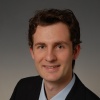
Dr.-Ing. André F. Salomon (male) has been working on reconstruction and simulation topics for emission tomographic devices for more than 8 years, including his diploma thesis (SPECT reconstruction) and PhD thesis (PET and SPECT reconstruction) at Philips and RWTH Aachen University, followed by three years as PET/MR Research Fellow at King’s College London. He is currently working in the Oncology Solutions department at Philips Research on PET-related topics. During this period he gained extensive knowledge of reconstruction methods, Monte-Carlo simulations, and data analysis in emission tomography.